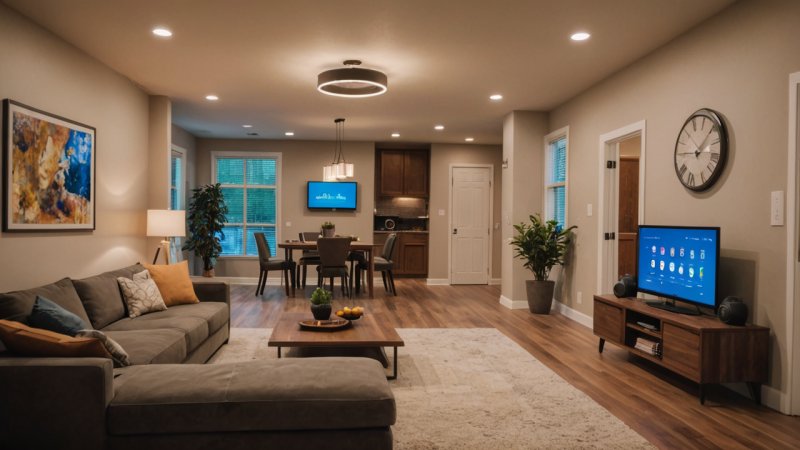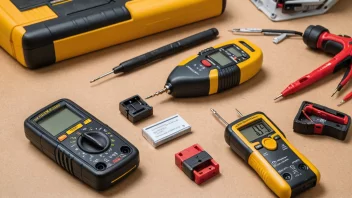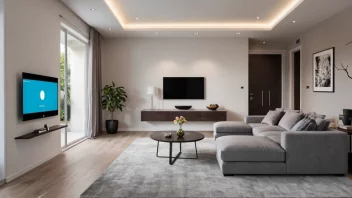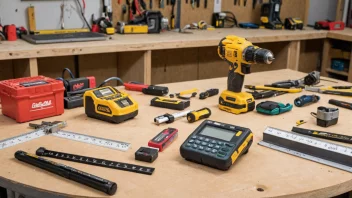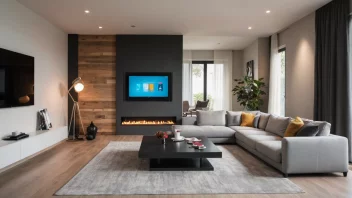In today’s competitive real estate market, homeowners are always on the lookout for ways to increase their home’s resale value. One effective strategy that has gained traction in recent years is the integration of smart home technology. This article explores how various smart home devices can not only enhance the comfort and convenience of living spaces but also significantly boost a property's market appeal and value. By understanding the impact of smart technology on modern homes, homeowners can make informed choices that lead to higher returns on their investments.
Understanding Smart Home Technology
Smart home technology refers to devices and systems that can be controlled remotely via the internet, allowing homeowners to manage their home’s functions seamlessly. From smart thermostats and lighting to advanced security systems and home assistants, these technologies offer unprecedented control and efficiency. The demand for smart home features has surged, with prospective buyers often expecting these amenities as standard in modern homes.
Key Smart Home Devices That Increase Resale Value
When considering which smart home technologies to invest in for resale value, it's essential to focus on devices that offer practical benefits and appeal to a wide range of buyers. Here are some key categories:
1. Smart Thermostats
Smart thermostats, such as the Nest Learning Thermostat and Ecobee, allow homeowners to optimize their heating and cooling systems. By learning the occupants' schedules and preferences, these devices can adjust temperatures automatically, leading to significant energy savings. Prospective buyers appreciate the potential for lower utility bills and enhanced comfort.
2. Smart Security Systems
Security is a top priority for many homebuyers. Smart security systems, including cameras, doorbell cameras, and motion sensors, provide peace of mind through remote monitoring and alerts. Systems like Ring and Arlo not only enhance safety but also attract buyers looking for modern solutions to home security.
3. Smart Lighting
Smart lighting solutions, such as Philips Hue or LIFX, allow homeowners to control lighting through their smartphones or voice-activated devices. These systems enable users to create mood lighting, schedule lights to turn on and off, and even control them remotely. The aesthetic appeal and energy efficiency of smart lighting can be a strong selling point.
4. Smart Home Assistants
Devices like Amazon Echo and Google Nest Hub act as central command centers for smart home devices. They enhance convenience by allowing users to control various aspects of their home through voice commands. The integration of smart assistants can make a home feel more modern and user-friendly, appealing to tech-savvy buyers.
5. Smart Appliances
Modern appliances equipped with smart technology, such as refrigerators, ovens, and washing machines, can enhance the functionality of a home. Features like remote monitoring and energy consumption tracking can attract buyers who value efficiency and innovation.
Enhancing Home Appeal Through Smart Technology
In addition to the individual benefits of smart devices, the overall appeal of a smart home can significantly influence a buyer's perception. Here’s how smart technology can enhance home appeal:
1. Convenience and Lifestyle
Smart devices cater to the lifestyle of modern homeowners. The convenience of controlling various home functions from a smartphone or through voice commands can be a major selling point. Buyers often look for homes that can accommodate their busy lifestyles, and smart technology provides that flexibility.
2. Energy Efficiency
With growing awareness about environmental issues, energy-efficient homes are in high demand. Smart home technology can optimize energy usage, making homes more sustainable. Features like smart thermostats and energy-efficient appliances can help position a home as environmentally friendly, appealing to eco-conscious buyers.
3. Safety and Security
The peace of mind that comes with enhanced security features is invaluable. Smart security systems not only protect homes but also reassure potential buyers that their investment is safe. This is especially important for families and individuals living in urban areas or neighborhoods with higher crime rates.
4. Customization and Control
Homebuyers appreciate the ability to customize their living space. Smart home technology allows for a high degree of personalization, from adjusting lighting to managing appliances. This capability can make a home feel more tailored to the buyer’s needs, increasing its desirability.
Investing Wisely: Prioritizing Smart Home Features
While incorporating smart technology can enhance resale value, it’s crucial to select the right features that will appeal to a broad audience. Here are some tips for homeowners considering smart upgrades:
1. Focus on Popular Features
- Research which smart home technologies are most sought after in your local market.
- Consider features that offer both convenience and energy savings, as these are attractive to many buyers.
2. Ensure Compatibility
- Select devices that are compatible with one another and can be easily integrated into existing systems.
- Opt for platforms that allow for future expansion and upgrades.
3. Professional Installation
- When necessary, invest in professional installation to ensure that devices are set up correctly and function seamlessly.
- A well-installed smart home system can be a strong selling point for potential buyers.
Market Trends and Buyer Expectations
As technology continues to evolve, so do buyer expectations. Here are some current trends that homeowners should keep in mind:
1. Increased Demand for Smart Features
According to recent surveys, a significant percentage of homebuyers now consider smart home technology a must-have feature. This trend is especially prevalent among younger generations who are more accustomed to technology in their daily lives.
2. Integration with Home Automation
Homebuyers are increasingly looking for homes that offer comprehensive home automation solutions. The ability to control multiple devices from a single app or interface is becoming a key selling point.
3. Emphasis on Energy Efficiency
Buyers are prioritizing homes that demonstrate energy efficiency through smart technology. This trend is likely to continue as more buyers become conscious of their environmental impact and seek homes that reflect their values.
Conclusion
Incorporating smart home technology is an effective way to enhance your home’s resale value while also improving your daily living experience. By focusing on popular and energy-efficient features, ensuring compatibility, and staying updated on market trends, homeowners can make informed decisions that yield significant returns on their investments. As the demand for smart homes continues to rise, those who embrace this technology will likely find themselves with a competitive edge in the real estate market.
